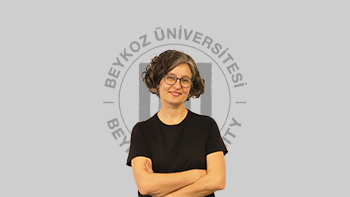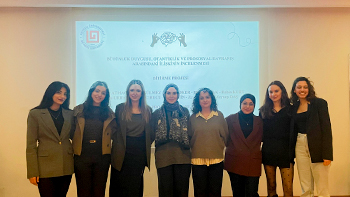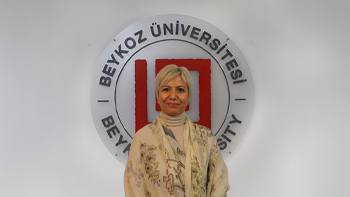
Welcome to the Department of Psychology!
Psychology is a dynamic and multi-dimensional discipline that seeks to understand individuals mental processes, emotions, and behaviors through scientific methods. In today’s rapidly changing world, evolving social structures, digitalization, cultural diversity, and individual differences require a more comprehensive approach to both theoretical and applied aspects of psychology.
As the Department of Psychology at Beykoz University, which takes global transformations into account, our goal is to equip our students not only with fundamental psychological knowledge but also with critical thinking skills, a sense of ethics and social responsibility, and a perspective enriched with multicultural sensitivity. Our program, structured around an interdisciplinary and applied educational approach that supports lifelong learning, aims to train students to become competent professionals in the field of psychology—capable of conducting research and applying their skills, while fostering awareness at both individual and societal levels.
Click here to access the Introduction to Psychology presentation prepared by our Dean, Prof. Dr. Mansur Beyazyürek.
Our Mission
Our mission is to educate individuals who can examine mental, emotional, and behavioral processes using scientific methods and adapt to rapidly changing social and technological conditions with interdisciplinary thinking. Our program not only aims to equip students with foundational psychological knowledge and skills but also to develop their research competencies, ethical awareness, and global perspective. The program is designed to support both personal development and social contribution.
Our Vision
Our vision is to contribute to the advancement of psychological science by graduating students who are responsive to current societal needs, committed to scientific and ethical values, and capable of adapting to multicultural and changing global conditions. We aim to create an innovative and sustainable academic environment that encourages interdisciplinary collaboration, maintains a balance between research and practice, and is recognized on an international scale.
Scope of the Education Program
Our undergraduate psychology program consists of seven academic semesters of theoretical and applied courses, followed by one academic semester of workplace practice. The curriculum is structured to cover fundamental theories and the subfields of psychology in a comprehensive way.
The educational process is designed within an interdisciplinary framework that enables students to gain a foundational understanding of psychology. In the first year, students are introduced to both the conceptual foundations of psychology and scientific modes of thinking through courses such as Introduction to Psychology I–II, History of Civilization, Mathematics, Philosophy of Science, and Scientific Writing. Supporting courses such as Psychology English and Career Planning focus on familiarizing students with psychological terminology and fostering their professional development.
In the second year, the biological and historical underpinnings of psychology are explored in depth through courses like Physiological Psychology, History of Psychology, and Research Methods. At the same time, students gain insight into core psychological processes with Developmental Psychology I–II, Learning Psychology, Personality Theories, and Cognitive Psychology.
During the third year, students develop research, evaluation, and intervention skills through both theoretical and applied courses, including Statistics, Social Psychology, Psychological Testing and Assessment, Organizational Behavior, Clinical Psychology, Experimental Psychology, and Cultural Psychology.
The fourth year includes courses such as Psychopathology, Political Psychology, and Ethics in Psychology, which encourage a critical, ethical, and multidimensional perspective. In the eighth semester, alongside the compulsory internship, general education courses such as Turkish Language and Atatürk’s Principles and History of Reforms allow students to complete their academic journey in a well-rounded way.
Throughout the program, students benefit from a wide range of elective courses offered each semester, allowing them to customize their learning experience in line with their career goals and personal interests.
Starting from the second year, electives such as Introduction to Psychodrama, Neuropsychology, Cinema and Psychology, Professional English, Forensic Psychology, Selected Topics in Social Psychology, Play and Psychology, Psychology of Sexuality, Current Issues in Psychology, and Introduction to Neuroscience enable students to enhance both their academic and applied competencies.
Furthermore, the program supports students in shaping their careers by allowing them to choose elective courses from within or outside the department.
For detailed course descriptions and ECTS information, please click here.
Projects
Our students are actively supported in developing scientific projects within the scope of the TÜBİTAK 2209-A Research Support Program for Undergraduate Students.
Projects involving our students include the following:
Project Title: The Emotional and Physiological Effects of the Theater-Viewing Experience: A Study Comparing GSR and Emotion Scale Data
Advisor: Dr. Özgül Akıncı
Project Team: Naime Hatice Gürler (Project Lead), Edanur Durmaz, Ali Mert Püsküllü, Turgay Eslen, Gülnihan Sarı
Project Title: The Impact of Emotion Regulation Skills on the Academic Success of Students During the LGS Exam Process
Advisor: Dr. Eda Ermağan
Project Team: Gülay Büyük (Project Lead)
Academic Staff
Our academic staff consists of faculty members who are not only deeply engaged in the teaching process but also actively conduct research and specialize in their respective fields.
To get to know our academic staff, please click here.
To explore their research projects and publications, please click here.
Through our Beykoz Talks podcast series featuring faculty members from our program, we cover a wide range of topics—from academic research areas to current developments in the field. You can listen to our podcasts from the link below:
- “Social Media Addiction” with Prof. Dr. Mansur Beyazyürek
- “Time Management, Productivity and Mindfulness” with Assist. Prof. Eda Yılmazer
- “Holidays and Psychology” with Prof. Dr. Mansur Beyazyürek and Assist Prof. Dr. Eda Yılmazer
- “The Pathology of Love” with Prof. Dr. Mansur Beyazyürek and Assist. Prof. Eda Yılmazer
- “Stress, Anxiety and Psychological Resilience in the Preference Process” with Assist. Prof. Pelin Hazer
- "The Psychological Well-Being Effects of Watching Theater" with Assist. Prof. Özgül Akıncı and Hatice Naime Gürler
- “Children's Visibility and Psychology on Social Media" with Assist. Prof. Pelin Hazer
- “Social Anxiety” with Prof. Dr. Mansur Beyazyürek
- "A Gastronomic and Psychological Perspective on the New Year’s Menu" with Prof. Dr. Pınar Kurt Combil and Assist. Prof. Serap Nazır
Program Learning Outcomes
- Being able to explain fundamental psychological concepts, models, and theories.
- Being able to apply knowledge, skills, and experiences from different subfields of psychology to personal, social, and academic contexts.
- Being able to analyze psychological processes from an interdisciplinary perspective by utilizing knowledge of psychology’s relation to other sciences.
- Being able to effectively use research methods and techniques such as data collection, analysis, and interpretation in psychology.
- Being able to follow current psychological research and access new knowledge regarding psychology-related issues and practices.
- Being able to critically evaluate the cognitive, psychological, and social causes and consequences of human behavior.
- Being able to communicate psychological knowledge effectively to different audiences through written, oral, and visual means.
- Being able to effectively use information and communication technologies in psychological research, data analysis and presentation processes.
- Being able to integrate theoretical knowledge with practice through workplace experience during a semester.
- Being able to contribute to the improvement of professional practices and preventive efforts to reduce potential problems in psychological applications.
- Being able to continuously develop knowledge and skills by following advances and current research in the field.
- Being able to contribute to the solution of social problems by utilizing professional knowledge and social skills.
- Being able to demonstrate professional ethical awareness and responsibility in the use of psychological knowledge.
- Being able to apply psychological knowledge, academic training, and clinical experience to professional practice.
Program Educational Objectives
Graduates of our program will be able to;
• Work in public institutions, private organizations, non-governmental organizations, or in health and education sectors, developing practices that support mental well-being and contribute to the improvement of societal welfare.
• Take on roles as analysts, consultants, or practitioners in counseling centers, human resources departments, research companies, or media organizations, where they engage in psychological data analysis, behavioral evaluation, and interpretation of social trends.
• Choose an academic career path by pursuing master’s and doctoral programs, conducting scientific research at universities or research centers, and contributing to the psychology literature.
• Be qualified to work in national and international institutions, in collaboration with professionals from other disciplines, as culturally sensitive and ethically grounded experts who produce scientifically based solutions.
Our Graduates
Our university supports students in career planning from their first year through the Career Planning course, Career Days that bring together students with professionals and alumni from various sectors, and the services provided by the Career Center.
Practical Training Process
During their final academic year, students have the opportunity to apply the theoretical knowledge they have acquired throughout their studies in a practical setting through an internship program. A significant number of our graduates secure career opportunities at the institutions where they completed their internships, giving them a strong advantage in the job market.
International Exchange Programs
Thanks to partnerships with universities abroad, our students benefit from exchange programs and international scholarship opportunities. The Erasmus+ program, in particular, is actively utilized by our students.
Our Erasmus+ partner institutions include:
• Università degli Studi di Firenze
• International University of Sarajevo
• Osnabrück University
• International Vision University
• International Balkan University
• Universidad Católica de Murcia
• Alexandru Ioan Cuza University
For more information about Erasmus+, please click here.
Double Major and Minor Programs
Within the scope of bilateral agreements, our students have the opportunity to pursue double major and minor programs in collaboration with other departments of the university.
Research Opportunities
Students interested in academic research can participate voluntarily or with compensation in faculty-led research projects or apply for TÜBİTAK grants under faculty supervision.
Student Clubs
There are numerous student clubs at our university. The Psychology Club, founded by, students in our program, provides opportunities for social engagement, initiative-taking, and the expression of creativity.
Events
Our department regularly organizes conferences, seminars, and panel discussions, hosting expert speakers to provide students with the opportunity to follow current developments in psychology and scientific research.
Graduate Education Opportunities
Our program offers three graduate programs under the Institute of Graduate Studies at our university:
• The Clinical Psychology Master’s Program (with thesis / non-thesis)
• The Psychology Master’s Program (with thesis / non-thesis)
• The Work and Organizational Psychology Master’s Program (non-thesis)
For more detailed information about our graduate programs, please click here.
This content was updated on 22/01/2026.






